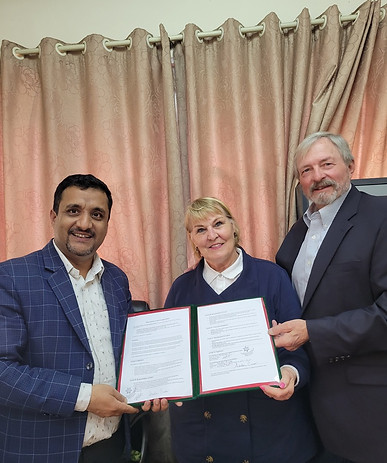About Us
The Food Security Education Project (FSEP) supports the primary and secondary education of marginalized students, identifies students having an interest in the agricultural and food security sciences, and offers support for their post-secondary education.
-
We sponsor and support - through assistance for tuition, fees, and subsistence - the education of students interested in pursuing a course of study in the agricultural and food security sciences.
-
We provide support for professors or advisors at in-country educational institutions via distance learning or through in-country guest lectures.
-
We provide opportunities for post-graduate education and companion research projects addressing food security issues.
-
We provide opportunities for established and retired professionals to volunteer as mentors for students in an approved field of study.
-
We assist in identifying key academic needs of in-country educational institutions and offer to provide distance or in-country opportunities for learning with the intent of benefiting students and faculty at host institutions.

Signing of Memorandum of Agreement between FSEP and Tribhuvan University, Kiritpur, Nepal (February 2025)
Pictured (left to right)
Dr. Kishor Chandra Dahal, Dean, Faculty of Agriculture, IAAS Tribhuvan University
FSEP Board Secretary Kathy Cisar
FSEP Founder and Board Chair Gordon Cisar
The Food Security Education Project (FSEP) is governed by a Board of Directors that is responsible for overall policy and direction of the organization. Board members have witnessed the problems and possibilities inherent in the educational and research organizations in Nepal and are committed to fostering educational opportunities that promote food security.
In addition to the Board of Directors, the FSEP has also established an Advisory Board as a resource of knowledgeable individuals who have the benefit of experience in their home country, who understand the value proposition the FSEP is offering, and who want to contribute to the success of the project.
Members of the Board of Directors and the Advisory Board serve on a voluntary basis and receive no compensation for their services. This ensures that all donations go directly towards supporting the mission of our foundation.












